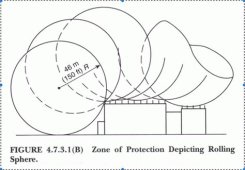This applies to off-grid setups and "earth" grounding, not chassis grounding. Not that I like to take a bath with my toaster.
I was thinking about lightning protection. The idea is to NOT ground things to earth but instead isolate from earth. The idea is to not help initiate any lightning leaders from ground source. I have some panel leads that are ran in poly tubing on the surface. Not sure how much poly insulates, have to look into that. Wondering if buried would be better or not.
Only thing is, I want to run some surge arrestors and I am not sure if those work off earth grounding or not.
Thoughts? Question is, would earth grounding make lightning strikes more likely? Why earth ground if you are not on the power grid?
I was thinking about lightning protection. The idea is to NOT ground things to earth but instead isolate from earth. The idea is to not help initiate any lightning leaders from ground source. I have some panel leads that are ran in poly tubing on the surface. Not sure how much poly insulates, have to look into that. Wondering if buried would be better or not.
Only thing is, I want to run some surge arrestors and I am not sure if those work off earth grounding or not.
Thoughts? Question is, would earth grounding make lightning strikes more likely? Why earth ground if you are not on the power grid?



